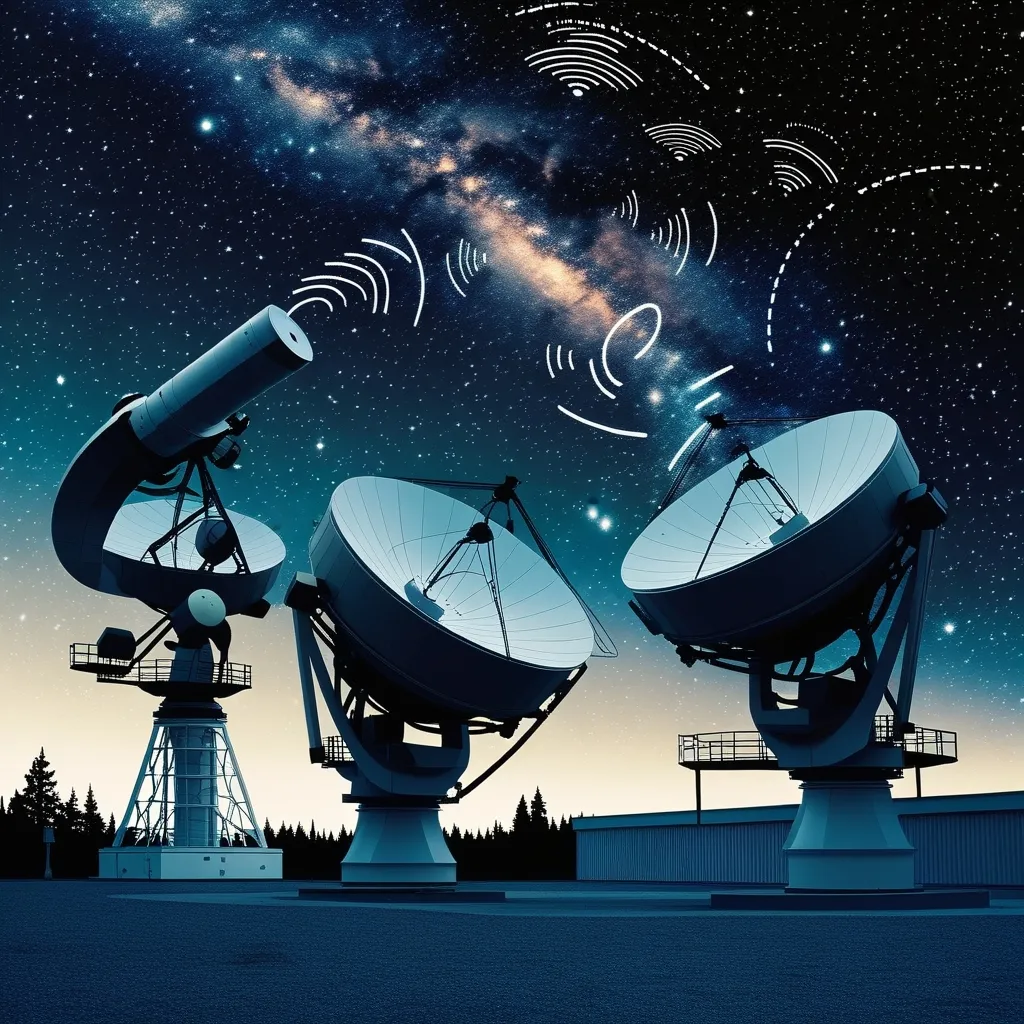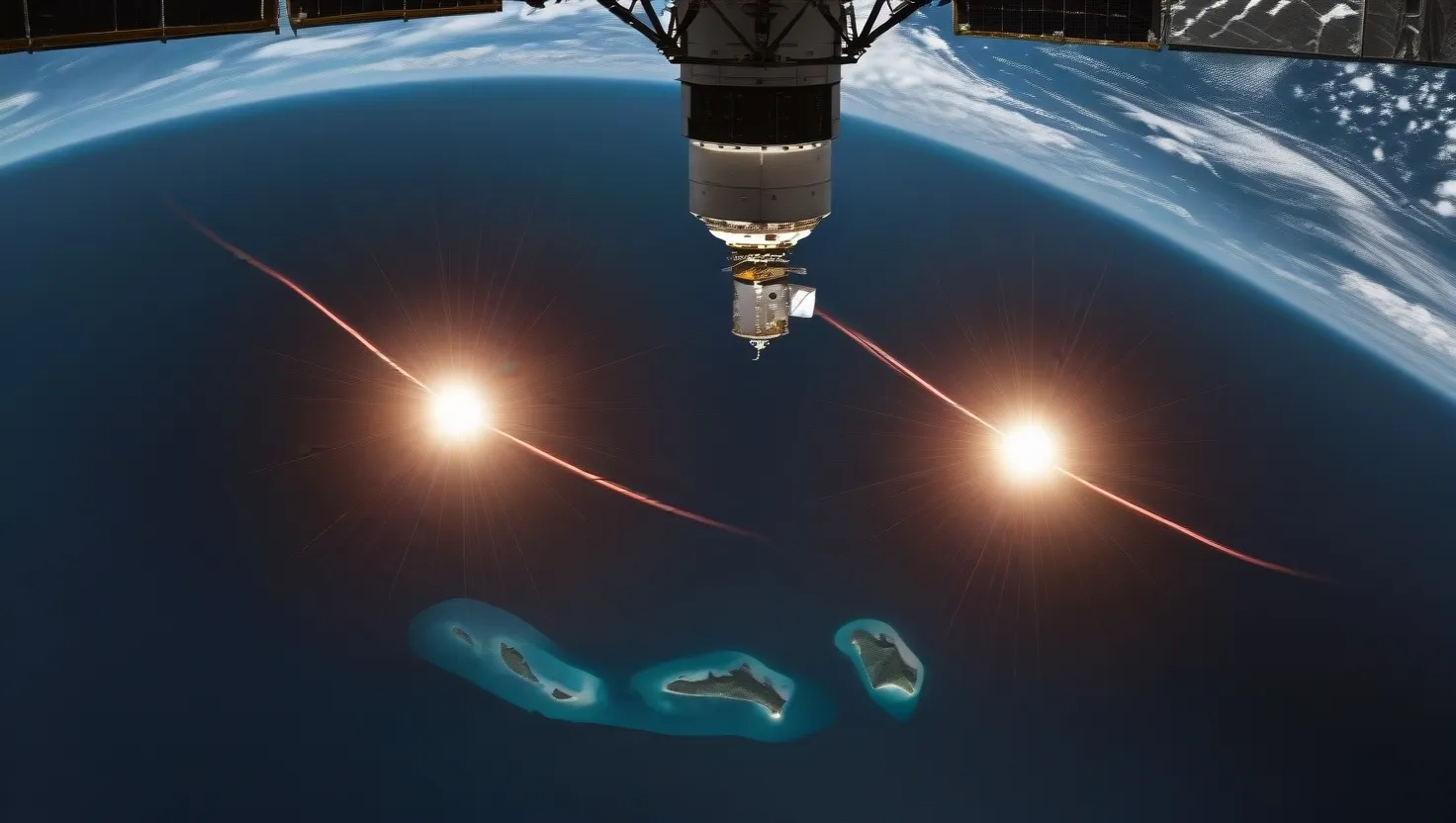The Search for Extraterrestrial Life: Signals from the Stars
Have you ever looked up at the night sky and wondered if we’re alone in the universe? It’s a question that’s fascinated humans for centuries. These days, scientists are using some pretty cool tech to search for signs of alien life out there in the cosmos.
One of the most exciting parts of this search is looking for technosignatures. These are signals that might show there’s advanced alien tech out there somewhere. It’s like trying to spot ET’s version of our radio and TV signals.
But here’s where things get a bit wild - some people are starting to wonder if these alien signals could actually be messing with our heads. Crazy, right? Let’s dive into this idea and see what’s really going on.
First off, we need to talk about SETI - that’s the Search for Extraterrestrial Intelligence. These days, SETI researchers are using some seriously smart AI to help sort through mountains of data from radio telescopes. It’s like looking for a needle in a haystack, but the haystack is the size of the universe.
Recently, some scientists used a fancy algorithm to look at a ton of data from the Green Bank Telescope. They found eight signals that looked pretty interesting. These signals came from stars between 30 and 90 light-years away from Earth. That might sound far, but in space terms, it’s practically next door.
Now, before you get too excited, finding these signals doesn’t mean we’ve found aliens. But they’re interesting because they’re different from the usual space noise we pick up. They change frequency over time, and they only show up when the telescope is pointed at specific stars. It’s like they’re saying, “Hey, look over here!”
The tricky part is, when scientists went back to look for these signals again, they couldn’t find them. It’s like trying to catch a shooting star - blink and you miss it. So for now, we’re left wondering what these signals could be.
The whole idea of technosignatures comes from thinking about our own planet. We’re constantly sending out signals into space without even meaning to. Our TV shows, radio broadcasts, and even our military radars are all leaking out into the cosmos. So scientists figure, if there are aliens out there with similar tech, maybe we could spot their accidental broadcasts too.
Now, let’s get to the really out-there idea - could these alien signals be controlling our brains? It sounds like something straight out of a sci-fi movie, doesn’t it? But it’s worth thinking about, even if it’s just to understand why it’s probably not happening.
First off, for aliens to control our brains with signals, they’d need to be way, way more advanced than us. They’d need to understand how our brains work better than we do, and have tech that’s so advanced it might as well be magic to us.
Plus, the signals we’ve detected so far are just simple radio waves. They’re not complex enough to carry the kind of information you’d need to control a brain. It’s like trying to stream a 4K movie over an old dial-up internet connection - it’s just not gonna happen.
But let’s play a game of “what if” for a moment. If aliens could control our brains with signals, it would turn everything we think we know about ourselves upside down. Are our thoughts really our own? Do we really have free will? It’s the kind of stuff that keeps philosophers up at night.
And it gets even more complicated when you think about how diverse we humans are. We have thousands of different languages and cultures. For aliens to manipulate all of us, they’d need to understand every single one. It’s hard enough for us to communicate with each other sometimes, let alone with beings from another planet!
There’s actually a group of scientists at the Cambridge Institute of Exo-Language who are trying to figure out how we might talk to aliens if we ever meet them. It’s a tough job - how do you explain human concepts to a being that might think in ways we can’t even imagine?
The idea of alien mind control also brings up some serious ethical questions. If we did find out that alien signals were influencing us, what would we do about it? How would we protect ourselves? It’s similar to the debates scientists have about whether we should be sending messages out into space. Some people worry that contacting aliens could be dangerous - what if they’re not friendly?
For now, though, all of this is just speculation. Scientists are being really careful about how they approach the search for alien life. They know that if they’re going to claim they’ve found evidence of aliens, they need rock-solid proof. They can’t just go on one weird signal - they need to be able to detect it over and over again.
So while the idea of alien signals controlling our brains is fun to think about, it’s not something we need to worry about right now. It’s firmly in the realm of science fiction, not scientific fact.
But that doesn’t mean the search for alien life isn’t exciting. Every day, scientists are collecting more data, developing better tools, and coming up with new ways to search the sky. We’re constantly pushing the boundaries of what we know and what we can detect.
And who knows? Maybe one day we’ll pick up a signal that changes everything. Maybe we’ll finally answer that age-old question: are we alone in the universe? Until then, we’ll keep looking up at the stars, wondering what secrets they hold.
The search for alien life is about more than just finding ET. It’s about understanding our place in the universe. It’s about pushing the limits of our technology and our imagination. And it’s about asking the big questions that have fascinated humans since we first looked up at the night sky.
So the next time you’re outside on a clear night, take a moment to look up. Those twinkling stars might just be hiding the greatest discovery in human history. And even if they’re not, isn’t it amazing to think about the possibilities?
In the end, whether or not we find alien life, the search itself is incredible. It shows how curious we are as a species, how we’re always pushing to learn more and explore further. It’s a reminder that no matter how much we think we know, there’s always more to discover.
So keep looking up, keep wondering, and keep asking questions. Because who knows? The next big discovery could be just around the corner. And whether it’s alien signals, new planets, or something we can’t even imagine yet, it’s sure to be out of this world.






